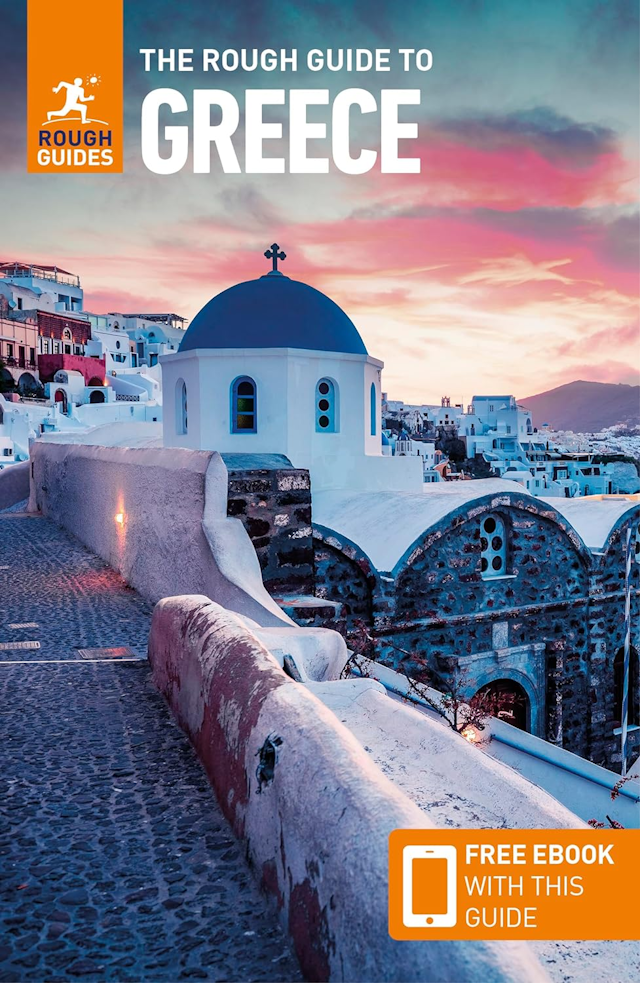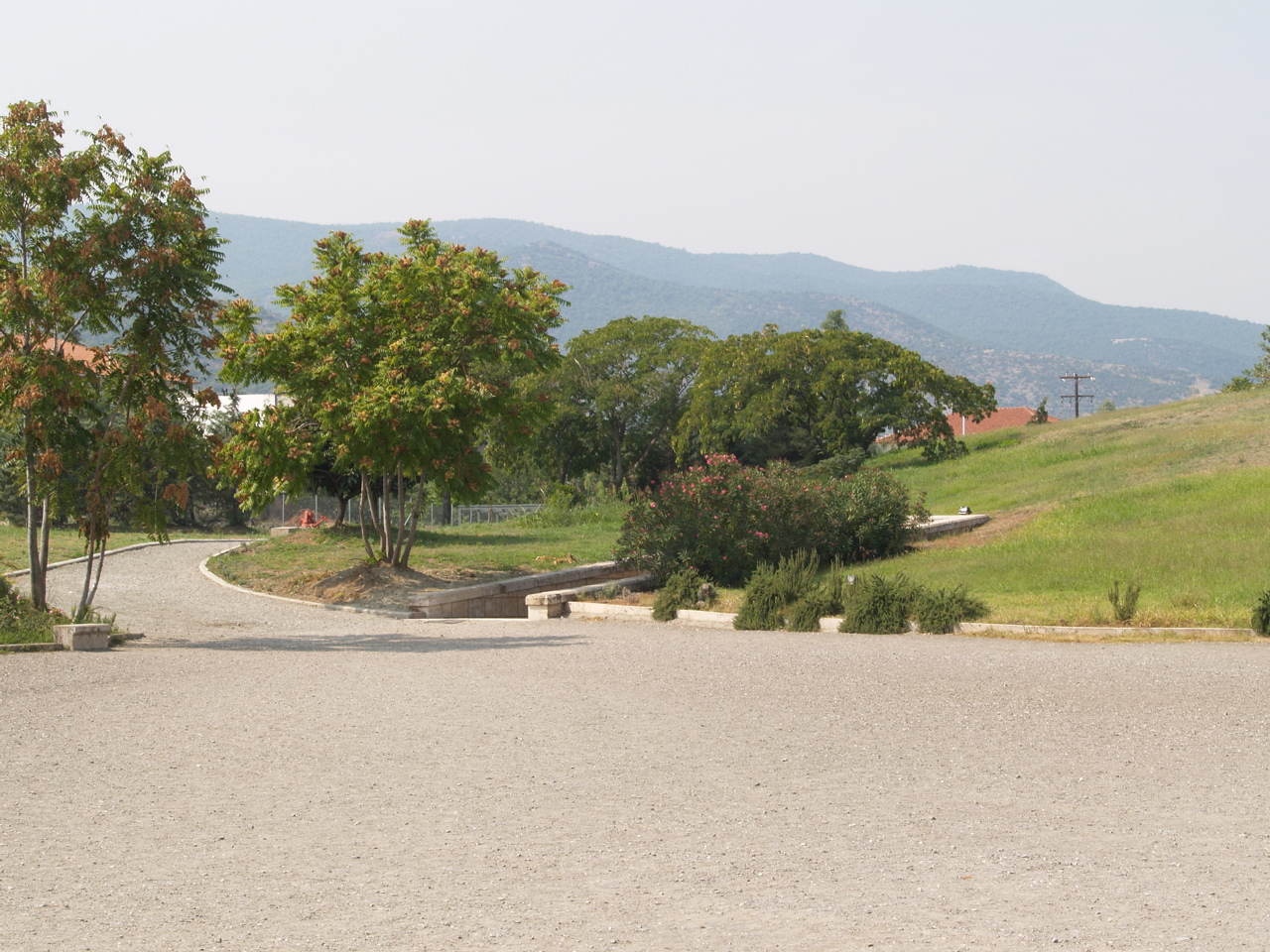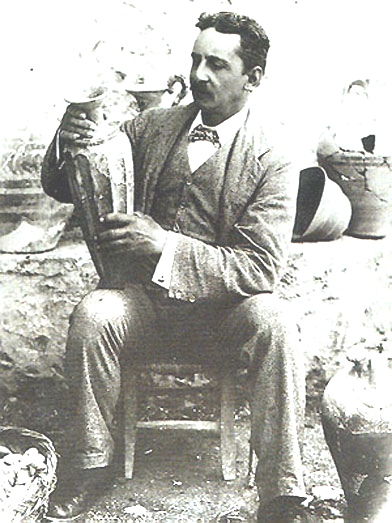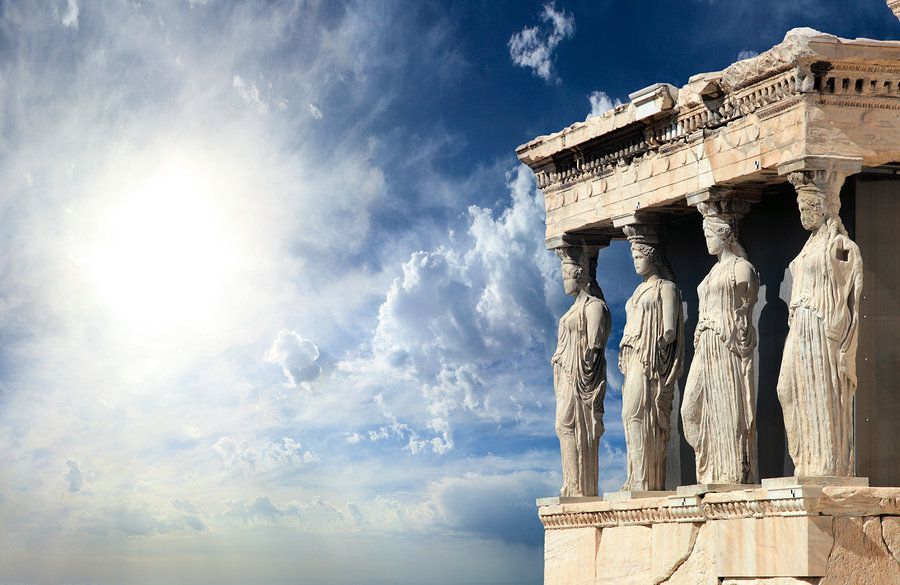- HOME
- Peloponnese
- Mycenae
- Heinrich Schliemann
Heinrich Schliemann
Heinrich Schliemann was a German archaeologist who explored sites connected with the writings of Homer, including Troy, Mycenae, and Ithaca, and made some extraordinary finds even if they weren't always what he thought they were.
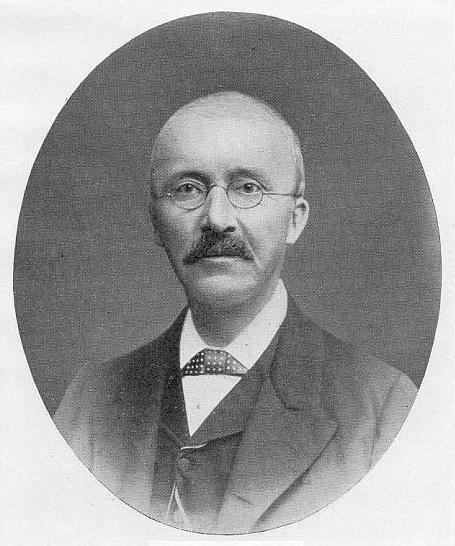 Heinrich Schliemann
Heinrich SchliemannGerman-born archaeologist Heinrich Schliemann (1822-1890) devoted his life to pursuing the treasures hidden in the Greek earth. If at times he let his theories override the evidence, he was still a great enthusiast who discovered many of Greece's finest ancient treasures - even if they were not always exactly what he believed them to be.
Schliemann was an intriguing man. After making his business fortune partly as a military contractor in Germany, Holland, and Russia during the Crimean War, he became a US citizen while living in California in the 1850s. He then moved to Greece at the age of 46 to devote the rest of his life to archaeology.
Heinrich Schliemann and Homer
More specifically, he had been fascinated since childhood with the works of Homer, and their mingling of myth and history. Did such places as Troy and the Palace of Odysseus really exist? Schliemann resolved to find out, even though his formal education had ended at the age of 14.
Heinrich Schliemann at Troy
He began by looking for Troy, scene of Homer's Iliad. In 1870 he began digging at Hisarlik, close to the Turkish Aegean coast, which he had identified as the probable location of the city. He found evidence of several cities having existed on the site, and declared that the second earliest of them, where there were traces of burning, was Homer's Troy.
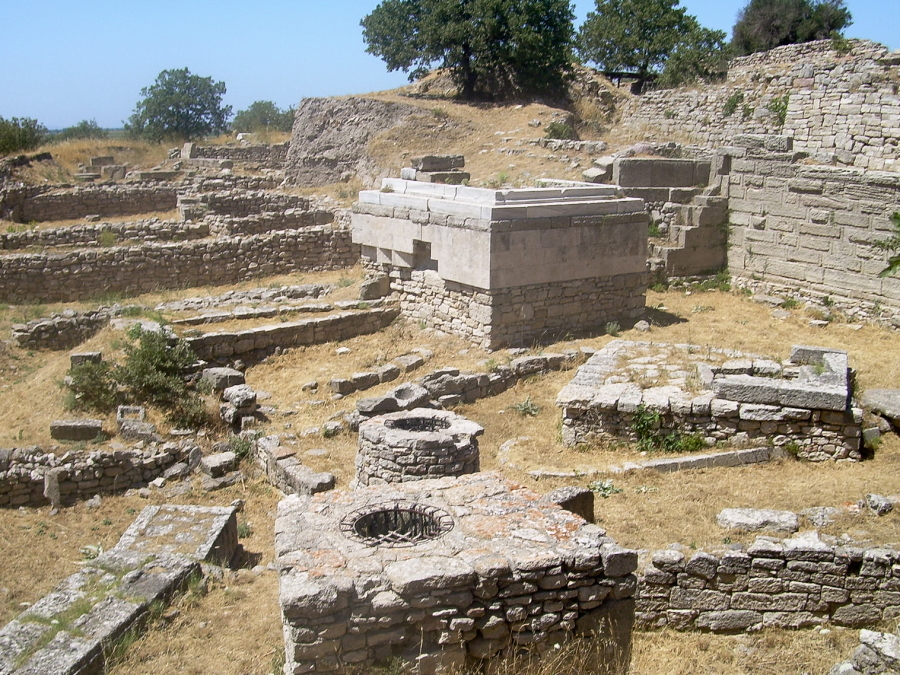 Hisarlik
HisarlikIt is now known that if, in fact, Troy was located there, it was one of the later levels that Schliemann had already dug through and destroyed in the process of excavation. Whatever the truth of the find - it has never been established for sure, and probably never can be - Schliemann certainly uncovered an important historical site.
Mycenae
In 1874 he moved from Troy to explore at Mycenae. He was seeking the tombs of the ancient Mycenaean kings and was determined to find the tomb of Agamemnon, to prove that this character actually existed. Schliemann uncovered a stunning golden burial mask and confidently announced to the King of Greece in a famous telegram: 'I have gazed upon the face of Agamemnon.'
 The Golden Mask, but not Agamemnon
The Golden Mask, but not AgamemnonLater dating established that it could not have been Agamemnon, even if the king had been a historical rather than legendary character. It was dated from the 16th century BC, so was too old to be that particular king. Schliemann never let the opinions or evidence of experts divert him from his own strongly-held views.
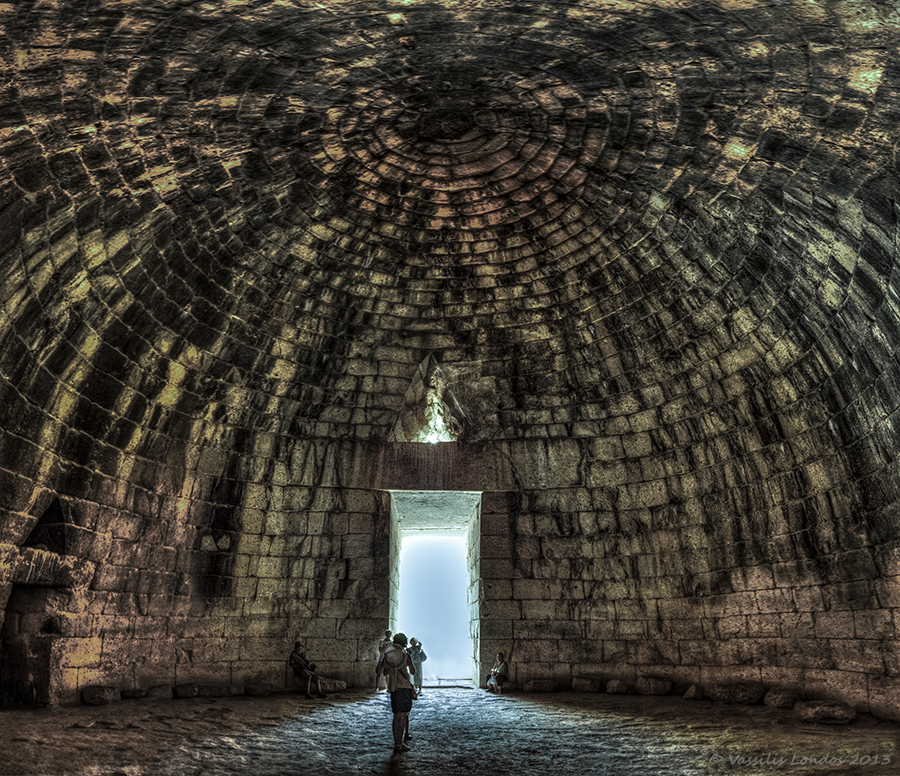 Beehive Tomb at Mycenae
Beehive Tomb at MycenaeHeinrich Schliemann and Ithaca
It was inevitable that Schliemann would move on to Ithaca, to look for historical evidence of the existence of Odysseus and his palace, and other sites described in Homer's Odyssey. It was equally inevitable that he would find something that he would identify as those sites, but again there is still no absolute proof that he was right.
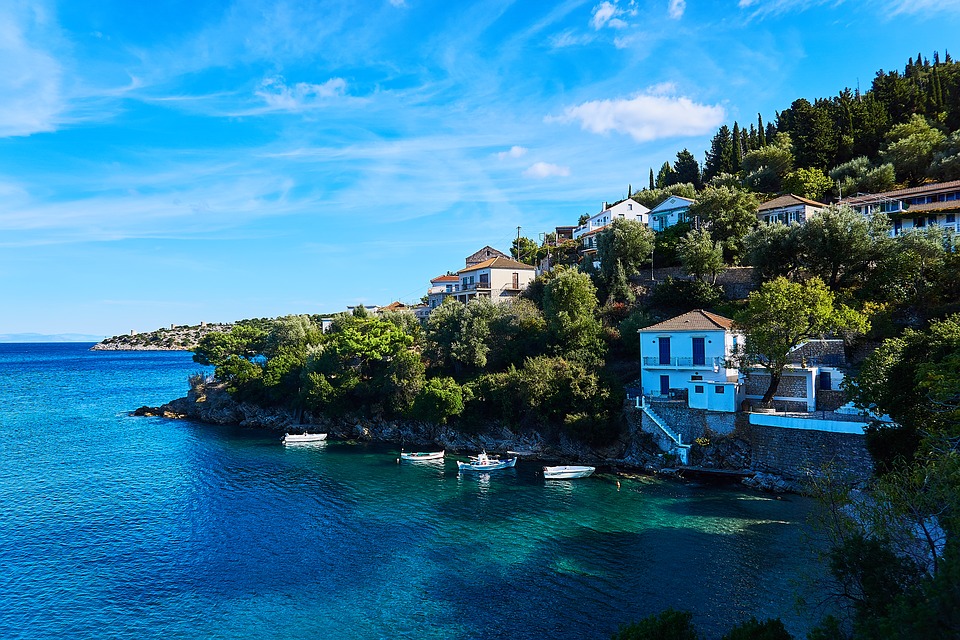 Ithaca
IthacaHe did further important work at Tiryns, near Mycenae, and had also hoped to excavate at Knossos on Crete, another location mentioned by Homer, but he could not agree to the price being asked for access to the land.
Despite his great knowledge and enthusiasm, Schliemann was perceived by other archaeologists as an amateur and an upstart. Nevertheless it cannot be denied that he uncovered large and significant sites that other archaeologists had missed.
Latest Posts
-
5 Reasons to Spend Easter in Meteora
Renowned for its spectacular “hanging” monasteries and reverent atmosphere, Meteora is the perfect place to spend Greek Easter. -
3 Must-Visit Islands for Greek Easter
Boasting spectacular landscapes and unique local traditions, the islands of Lesvos, Ikaria and Andros are ideal vacation destinations for Greek Easter. -
Easter Cookies from Smyrna, a 100-Year-Old Recipe
Discover the secret to making the most delicious Easter koulourakia (cookies) from Smyrna, passed down through five generations. -
Acropolis Museum Exhibition: The Parthenon and Byron
On the occasion of 200 years since Lord Byron’s death, the Acropolis Museum in Athens is honoring his memory with a symbolic exhibition related to Lord Elgin’s taking of the Parthenon sculptures. -
Greece Launches Contactless ‘Tap & Pay’ System on Athens Airport Express Buses
The Greek Transport Ministry on Wednesday launched a pilot ‘Tap & Pay’ contactless payment system for passengers traveling on the express bus lines in Athens that connect to Athens International Airpo… -
Greece Bans Sunbeds, Umbrellas, Bars on 198 Beaches
Sunbeds, umbrellas, and all sorts of constructions have been banned on 198 beaches across Greece according to a joint ministerial decision signed this week by Economy & Finance Minister Kostis Hatzida… -
4 Guesthouses in Zagori that Are Worth Visiting
Amidst the mountains and spectacular scenery, these four traditional guesthouses in the heart of Zagori, Epirus, offer the very best in Greek hospitality. -
Greece’s 10 Highest Mountains
From myth-laden peaks to rugged alpine trails, we explore ten of Greece's highest mountains, where untamed beauty and boundless adventure meet. -
Paris 2024 Olympic Flame Lit at Ancient Olympia, Countdown to Games Begins
The Olympic flame that will be burning for the Paris 2024 Olympic Games this summer was lit in Ancient Olympia on Tuesday, April 16. Located in western Peloponnese, Ancient Olympia is one of the most… -
April 17 Greece National Strike to Affect Public Transport, Ferry Travel
Public transportation in Athens as well as ferry travel in Greece will be disrupted on Wednesday, April 17, due to a 24-hour strike called by the General Confederation of Greek Workers (GSEE), the cou…
